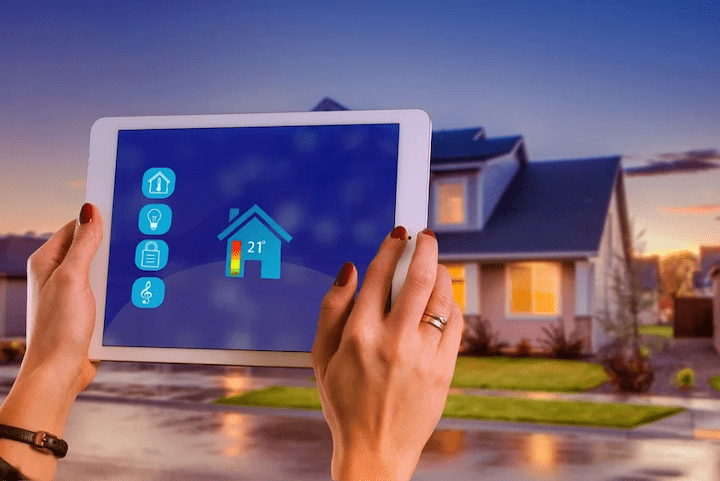Smart Homes - The Home of the Future

Do you know the feeling? You're on your way home, had a tiring day and the weather isn't exactly helping to brighten up your mood? You just want to sit on your sofa at home, drink a hot cup of tea and watch the news. But before that can happen, you still need to go shopping, check if your plants need water, adjust your blinds, adjust the heating temperature, and ventilate briefly beforehand.
What is meant by a "smart home"?
"Smart Home", also known as "Smart Living", is used as an umbrella term for technical processes and systems that aim to increase the quality of living and life. They have the capability to remotely control almost all household appliances. They can automate operations and set up timed processes. Additionally, they significantly enhance security and energy efficiency. Other fields where intelligent robots are or will be utilized include medicine, pharmacy, sports, and the environment.
Intelligence is the ability to adapt to change.
How does it work
Different devices interact with each other through sensors and actuators, which are usually controllable by app or voice assistant. In short, it works according to the EVA principle, which stands for input, processing, and output. The basic building block for this is a digital data network through which the technical components can communicate with each other. An essential component is a central control unit, which is a small box connected to the router via a network cable, thus establishing a connection to the internet. To ensure smooth communication, a communication interface is required, such as Bluetooth, mobile phone, or WLAN. Devices of your choice are then connected to the central unit via an in-house radio network. Your household appliances, which you can install yourself without technical knowledge, are the final components of a smart home. You can control room thermostats, radiators, or your beloved coffee machine conveniently from your mobile phone, for example.
Four reasons for the smart home
More comfort: Smart homes are personalized and adapted to your needs during installation. The selection of intelligent devices is huge. Set up your personal Good Morning scenario, dim the lights in your bedroom, warm up the bathroom, and have your coffee machine turn on in time. Regulate the temperature according to a schedule and automate the lights and shutters when you leave the house. Additionally, people with (physical) impairments receive a higher standard of living.
Better Entertainment: Say goodbye to your collection of remote controls and comfortably operate your TV or music system through an app or voice command. Certain voice assistants even advise you on movie selection and offer entertainment options specifically for children. You can also control your device independently of its range as they are connected via Wi-Fi.
Increased Safety: Enhance the security of your home through motion sensors. Be informed through push notifications of unusual activities both inside and outside your house. Intelligent smoke detectors can also alert you in unaffected rooms or even while you are away.
Environmentally Friendly: Consume less energy by automatically regulating and lowering the temperature when you are not at home. Additionally, forgotten lights are automatically turned off. Intelligent devices are programmed to consume as little power as possible. Contribute comfortably to environmental protection through energy-efficient climate, ventilation, and heating control.
Data Security
Data that accumulates in your smart home is not only of interest to hackers, but also to the manufacturers themselves. With your information, the manufacturers can optimize the control of your smart device. If you are concerned about your data, you should first inform yourself in the general terms and conditions who has access to which data and when. Ideally, your data should only be collected for specific purposes. Take the time to read the terms and conditions carefully, as sometimes providers work with a specialized company. If this is the case, you should be able to explicitly consent to it. You may not be directly aware of it, but all possible data from your connected devices is stored, which is used to configure the components' control. These are stored for as long as you use a provider or until you delete your account.
If the security of your data is important to you, you should choose a provider that has their servers located in Germany. In general, data is secured according to the regulations of the respective country. Some providers even state how data security is ensured within their company. Furthermore, regular security checks should be carried out by external agencies, such as TÜV. Another important aspect is the encryption of your data. Depending on the type of encryption used, the access of unauthorized persons can be prevented with a high degree of probability. In general, it is advisable to be willing to pay a certain price if you value data protection. This is because devices from cheap providers communicate via radio waves, which are unencrypted and therefore attractive to hackers.